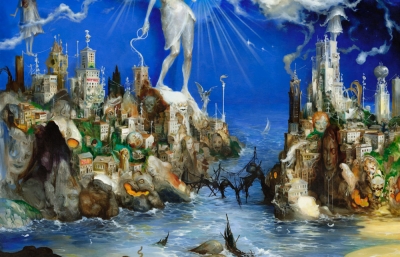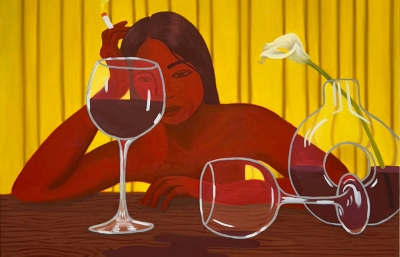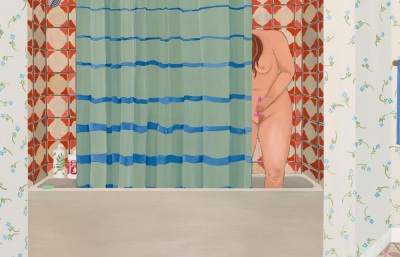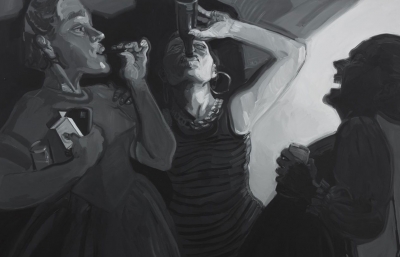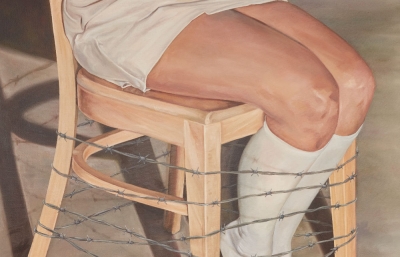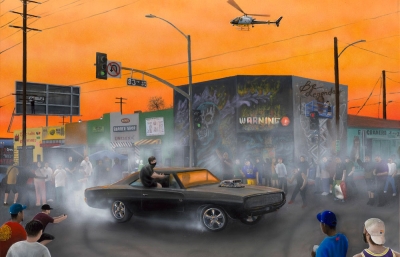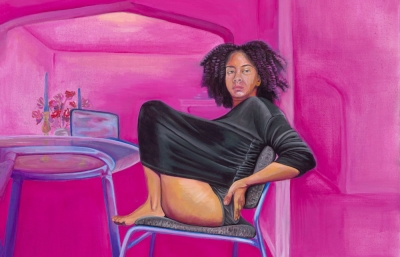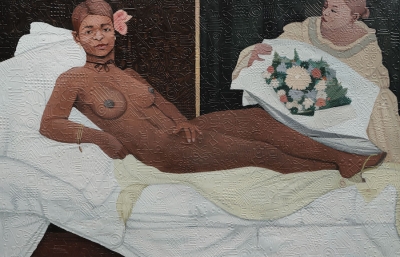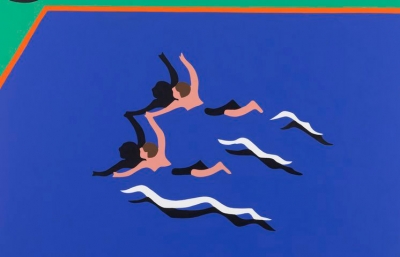pt.2 Gallery presents a group show of new works by Alicia McCarthy, Muzae Sesay, and Martha Shaw. An exhibition of paintings which is also a study on painting, the pieces of McCarthey, Sesay, and Shaw forward an interest in paint as material and its capacity to figure sensation. Here, matter and structure apply to a series of formalist concerns–luster, wash, gesture, hue, and texture—and the subject of depiction—abstraction, landscape, object, interiority, and trace. Together McCarthy, Sesay, and Shaw make a triangular formation allowing the exhibition to find its way between and within each artist's particular concerns while presenting moments of convergence wherein the audience is left to wayfind.
In this exhibition, the artists are presented in a series of groupings, McCarthy and Sesay, Shaw and McCarthy, and a solo presentation by Sesay. McCarthy's works use enamel paint, colored pencils, and hyper pigments to depict bowed bands of colors that weave into each other. Mccarthy's investment in the gesture and movement of paint and the materials themselves—upcycling and utilizing everyday mediums—is principle within these works. McCarthy's practice is a type of navigational tool, figuring flow—of paint, hand, and mind—to route herself. Shaw's oil on canvas works capture murky waters and radiating settings; whole and severed fish, flowers, and gems. Shaw paints on an intimate scale, drawing you into the glimmer and shine of each moment the object of study refracts. Sesay's works extend his vernacular on geometry and form with color blocks, elongated and wavering strokes, and spherical shapes, creating works on canvas that seamlessly shift dimensions. Peaks of exteriors, aerial views of structures, and polygon planes are awash in deep titian akin to the sun rising that finds its way into each work.
With Sesay's solo presentation, the works harken to particular locations in Oakland—restaurants, bars, and gathering spaces. Here, the state of reverie and the inevitable passing of time takes on the cartographical wherein Sesay recalls and supposes place. The precision of material attributes of each establishment becomes secondary as it is Sesay's sense of place which structure these works. Hung as a series of windows, each painting is framed by a brown rectangle painted directly onto the gallery wall extending to the floor; each piece offers a peek into an interior scene that is/was/will no longer be. Sesay's brighter tones have been washed in dark overlay, casting the work in the evening hours and leaving a glimpse of memory into a gloomy sphere. Here Sesay's meditations on the ever-changing landscape and his history within the city become portal-esque in their collapse of self, site, and continuance.
Central to the exhibition is an investment in the formation and substance of community. The Bay Area ethos, that radical refusal and call towards the collective that has guided the art-making that has and continues to happen here, is present in each artist's individual practices and as a group. McCarthy acts as a unifying agent extending her relationships as an informal mentee and mentor with Shaw and Sesay, respectively. Decades-long friendship and collaboration between Shaw and McCarthey and years-long fellowship and community building with Sesay, McCarthy's investment, and continued practice in care grounds the exhibition. There is a matter-of-factness to the design and execution of the works on view, an unsentimental and deeply tender assertation that making is fundamental and that material and friendship can guide our sense of art, care, and commitment to each other. In this sense, the ask here is one of presence to allow for the movement in paint and the spirit between artists to wash over. —Essence Harden





